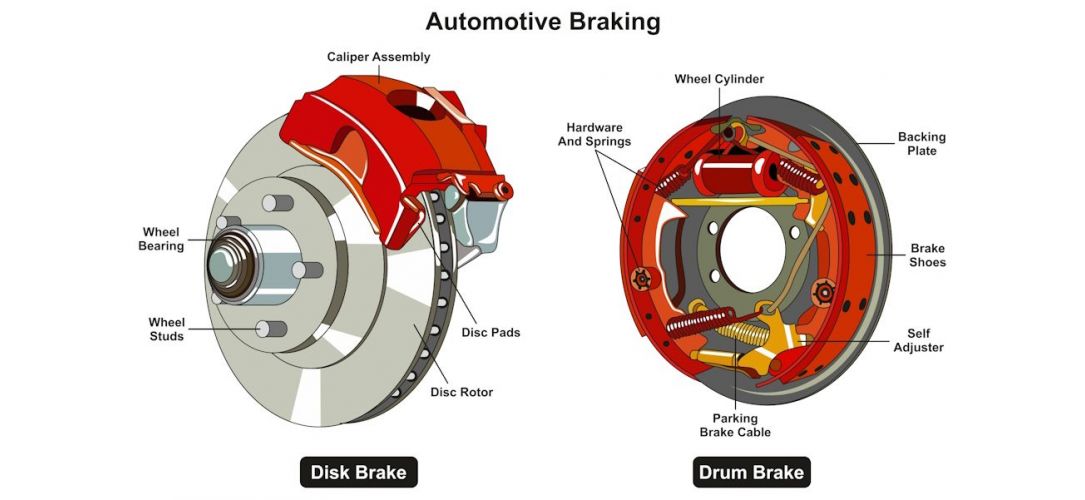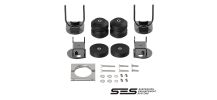In the world of towing and hauling, the importance of a reliable trailer brake system cannot be overstated. It's critical to ensure the safety and control of the towing vehicle and the trailer. A trailer brake system is designed to apply brakes on the trailer, synchronizing it with the towing vehicle. This synchronization is vital for maintaining control, especially when descending slopes or coming to a stop. The system comes in various types, including electric, hydraulic, and surge brakes, each tailored to different towing needs and vehicle types.
Overview of Trailer Brake Systems and Their Purpose
Trailer brake systems are integral components of any towing setup, providing a crucial function in ensuring the safety and control of a trailer while it's being towed. Their primary purpose is to assist in the deceleration and braking of the trailer, working in conjunction with the towing vehicle's brakes. When you apply the brakes in the towing vehicle, the trailer brake system activates, helping to reduce the trailer's speed. This synchronized braking action prevents the trailer from pushing the towing vehicle forward and helps maintain stability during stops. Whether you're towing a small utility trailer or a large RV, understanding the role of trailer brake systems is essential for safe and efficient towing.
Types of Trailer Brakes: Electric and Hydraulic
Trailer brakes come in two primary types: electric and hydraulic. Electric trailer brakes operate using an electronic controller installed in the towing vehicle. When you press the brake pedal in the towing vehicle, the controller sends an electrical signal to the trailer brakes, activating them. This type of brake system offers precise control and can be adjusted to suit various towing conditions. On the other hand, hydraulic trailer brakes, also known as surge brakes, rely on hydraulic fluid pressure to activate the trailer brakes. When you apply the brakes in the towing vehicle, the deceleration causes the trailer to push against a hydraulic actuator, activating the brakes. Hydraulic brakes are commonly found on smaller trailers and do not require an electric controller. The choice between electric and hydraulic brakes depends on factors such as trailer size, towing preferences, and legal requirements in your region.
Mechanics of Hydraulic (Surge) Brakes and Their Activation
Hydraulic, or surge, brakes are a specific type of trailer brake system known for their simplicity and reliability. These brakes operate based on the principle of deceleration. When you apply the towing vehicle's brakes, the slowdown of the towing vehicle causes the trailer to push forward against a hydraulic actuator within the surge brake system. This actuator compresses hydraulic fluid, which then activates the trailer brakes. The hydraulic pressure generated by this action engages the trailer's braking mechanism, slowing the trailer in proportion to the deceleration of the towing vehicle. Surge brakes are known for their effectiveness and are often found on boat trailers and smaller utility trailers. One of their advantages is that they do not require an electric controller, making them a straightforward and mechanical solution for trailer braking needs.
Integration of the Trailer Brake System with the Towing Vehicle
Integrating a trailer brake system with the towing vehicle is critical to safe and effective towing. To achieve synchronized and efficient braking, the trailer brake system must work harmoniously with the towing vehicle's braking system. This integration is typically facilitated by an electric controller in the towing vehicle, which sends signals to activate the trailer brakes when the driver applies the towing vehicle's brakes. The electric controller can be adjusted to control the level of braking force applied to the trailer, allowing for fine-tuning based on the specific towing conditions and load. This coordination between the towing vehicle and the trailer brake system ensures that both vehicles decelerate smoothly and uniformly, preventing issues like trailer push and promoting safe stops.
Regular Maintenance Requirements for Trailer Brakes
Ensuring the regular maintenance of your trailer brakes is essential to keep them in optimal working condition and guarantee safe towing operations. Neglecting brake maintenance can reduce braking performance, compromise safety, and cause potential accidents. The specific maintenance requirements for trailer brakes can vary depending on the type of braking system you have—electric or hydraulic.
Routine maintenance includes inspecting the brake pads, shoes, and brake magnets for wear and tear for electric trailer brakes. These components are crucial for generating friction and facilitating braking. If they show signs of excessive wear, they should be replaced promptly. Additionally, ensure that the electrical connections and wires are free from damage or corrosion, as any issues in the electrical system can disrupt brake function. Regularly testing the brakes and adjusting the brake controller settings is also part of the maintenance routine to ensure they respond effectively to braking commands.
In the case of hydraulic (surge) brakes, maintenance typically involves checking the hydraulic fluid level and ensuring it's within the recommended range. Low fluid levels can impede the brake system's hydraulic action, reducing braking performance. Inspect the hydraulic lines for leaks or damage, as any loss of hydraulic pressure can compromise the brakes' effectiveness. Regularly bleeding the brake lines to remove air bubbles and maintain proper hydraulic pressure is also essential for hydraulic brake maintenance. Additionally, checking the condition of the surge brake actuator and ensuring it moves smoothly is vital.
Legal Requirements and Regulations for Trailer Braking Systems
Different regions and jurisdictions may have specific laws and standards to ensure the safety of towing operations on public roads. These regulations aim to establish minimum safety standards for trailer braking systems, and violating them can result in legal consequences, fines, or penalties. For a breakdown of towing laws state by state please visit Brake Buddy's interactive guide here - Towing_laws
One common legal requirement is the minimum weight threshold that triggers the need for trailer brakes. In many regions, trailers with a gross vehicle weight rating (GVWR) above a specified limit are required to have operational brakes. The exact weight threshold may vary by jurisdiction, so it's crucial to check the local regulations applicable to your area. Trailer owners must ensure that their trailers meet these weight-based requirements to avoid legal issues and, more importantly, to enhance road safety.
Are you looking for dependable towing solutions? Look no further! We offer many products, including state-of-the-art trailer brake systems. Our expert team is always ready to provide the advice and products you need for safe and efficient towing. Whether you're managing a fleet of trucks or planning your next RV adventure, our brake systems are engineered to ensure maximum safety and control. Visit us and discover why we are your trusted source for all your towing needs.
-Happy Towing












